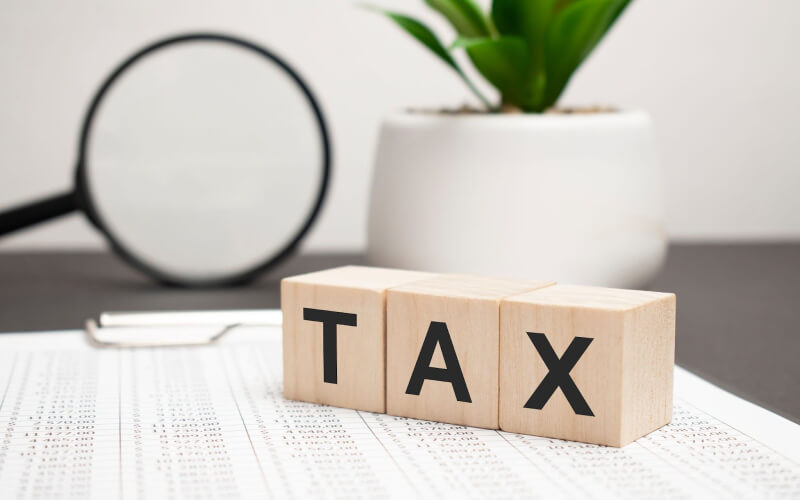Leaving Switzerland Taxes: Are you liable to pay?

If you are considering leaving Switzerland, you are likely wondering whether you have any tax obligations. In some circumstances, you will still be liable to pay Swiss taxes. Since tax laws vary between cantons and municipalities, your obligations will depend on where any assets like property are located.
As a financial expert for occupational benefits and expatriates, Chevrolet Consulting GmbH answers all your financial questions. Keep reading to find out more about your tax obligations after you leave Switzerland.
Taxes after you leave
Individuals who are residents or domiciled in Switzerland pay federal taxes. This payment occurs along with cantonal and municipal taxes on their worldwide income, with some exceptions.
You will not be deemed a resident if you do not plan to live in Switzerland permanently. You are also not considered one if, within a calendar year, you do not:
- Remain for more than 90 days if you don’t engage in gainful activity.
- Remain for more than 30 days if you are employed or engaged in gainful activity.
What are examples of relevant leaving Switzerland taxes?

You are only subject to Swiss income tax and net wealth tax until you officially have deregistered and have left the country. Still, once you leave Switzerland, taxes may still be applicable. Non-residents are liable to pay tax on, for example, payments from Swiss pension funds.
Taxes are also applicable to property-related income, including:
- Interest in real estate in Switzerland.
- Interest from a mortgage secured by real estate in Switzerland.
- Trade and agency of real estate in Switzerland.
You might also pay tax on business income or professional services, including:
- Interest in Swiss sole proprietorship or partnership.
- Trade and business attributable to a permanent establishment or fixed place of business in Switzerland.
- Professional practice in Switzerland.
- Services performed in Switzerland (with exceptions).
- Services rendered as a director or an officer of a Swiss corporation (with exceptions).
Generally, income for non-residents is subject to a withholding tax unless you file for an exemption. The withholding tax is calculated monthly. The actual tax rate depends on various factors, including the amount of income, canton, marital status and number of dependents.
Canton tax obligations
A non-resident with assets and property in Switzerland is subject to cantonal taxes. Each year, these individuals must file a individual tax return in the canton where the assets or property are located.
Each canton also has its own withholding tax tariff on income earned by non-residents. Along with federal tax on certain types of income, a canton may apply its own tax for non-residents.
When leaving Switzerland, remember to notify authorities in the canton where you live. You will be asked to complete forms to change your status for tax purposes.
Pensions and tax obligations
Normally, pension savings cannot be withdrawn early except in limited situations. For example, if you leave permanently, you can withdraw your occupational pension (pillar 2) from the Swiss pension system. You can do the same with the private pension provision (pillar 3a).
If you are moving outside the EU/EFTA, you can get paid out the total from your pillar 2 pension. If you move within the EU/EFTA, the so called mandatory part (or LPP) of the pension will be in a blocked account until turning 60. The other part is paid out. You can also withdraw your pillar 3a assets when leaving Switzerland, but taxes are applicable.
The amount of tax you pay on pension assets varies from canton to canton. You also need to provide proof of a new permanent residence abroad. If you are married, you will need your spouse’s written consent before withdrawing any assets from pensions, and this signature has to be notarized.
Double taxation agreements
In many countries, you are required to report worldwide income. Switzerland has double taxation treaties or agreements with over 100 countries. These agreements are designed to prevent double taxation. They also facilitate cooperation between Switzerland and tax authorities in other countries.
If you are moving to a country covered by a double taxation agreement, you may be exempt from paying tax. You can find information about double taxation agreements from the State Secretariat for International Finance.
How do I save, and are taxes applicable when leaving Switzerland?

When leaving Switzerland, taxes and obligations can become confusing, especially with rules that vary between cantons and municipalities. With Chevrolet Consulting GmbH, you get expert advice. I also offer tax-friendly services, including a vested benefit account. Vested pension benefits are taxed by the domicile of the pension fund at a special rate. You can save 50% or more, depending on where your pension fund is domiciled in Switzerland.
Contact me today for a free initial consultation!



